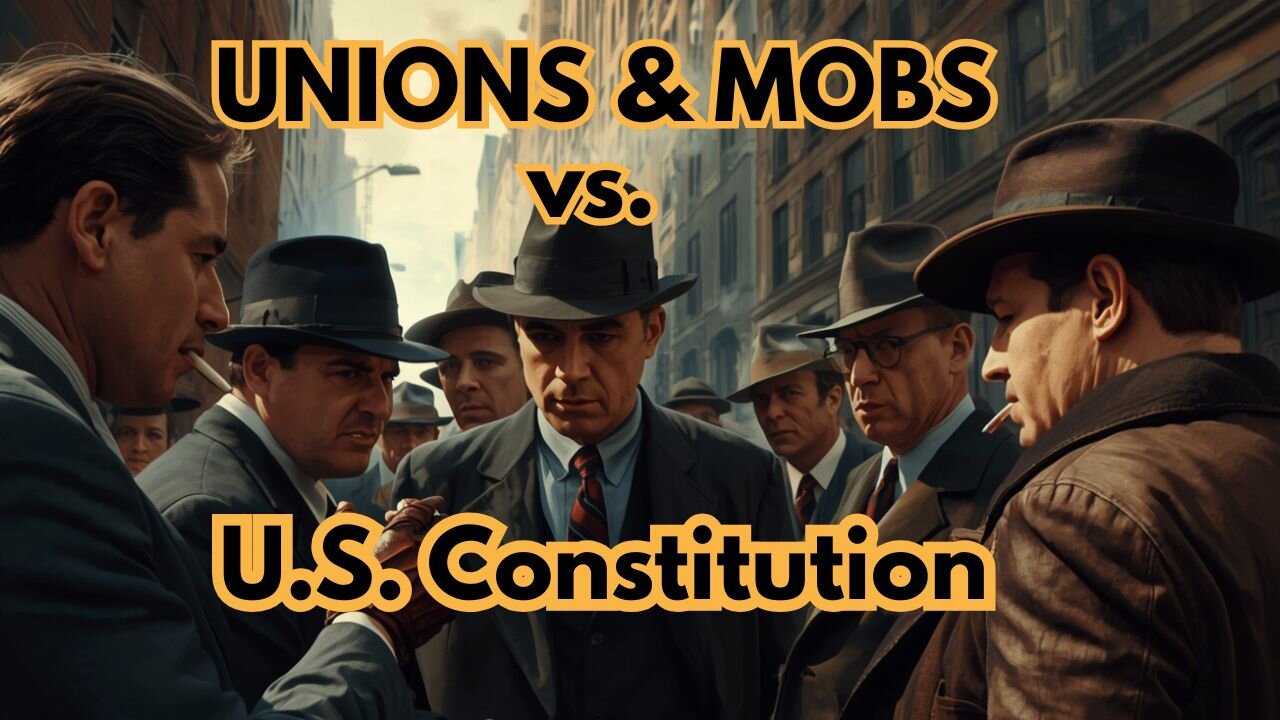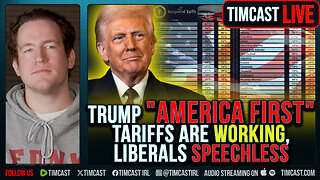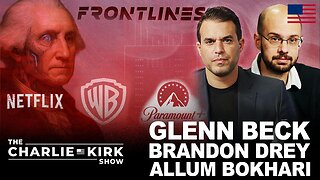Premium Only Content

The Wagner Act, the New Deal, and Why Unions Went Wrong
How a 1935 law reshaped labor—and why its legacy still burdens workers, employers, and the economy today.
Clifford Ribner examines the Wagner Act (National Labor Relations Act, 1935) and the New Deal, showing how they transformed labor relations and why their regulatory legacy still distorts today’s economy. He explains the common-law backdrop (contracts, property, torts), the principle of “tortious interference,” and how union rules changed the employer–employee relationship.
This video also highlights Henry Morgenthau Jr.’s 1939 warning about the failures of New Deal spending and FDR’s 1937 caution against public-sector unions—evidence that even New Deal insiders understood the dangers.
If you care about economic freedom, incentives, and real-world outcomes for workers, Ribner makes the case for why these laws still matter.
▶ More at https://CliffordRibner.com
Like, share, and subscribe on Rumble & YouTube.
-
 1:05:52
1:05:52
Timcast
3 hours agoTrump "America First" Tariffs Are WORKING, Liberals SPEECHLESS
151K51 -
 LIVE
LIVE
The Amber May Show
3 hours agoEsoteric Hollywood EXPOSED: Jay Dyer Breaks Down the Secret Symbols & Messaging| Smart Cities
116 watching -
 1:54:56
1:54:56
Steven Crowder
5 hours agoWe Need More Deportations Now - No Matter What Woke Podcasters Want You To Believe
391K223 -
 1:16:31
1:16:31
Sean Unpaved
2 hours agoMichigan FIRES Sherrone Moore - Police Detain Moore | UNPAVED
12.6K1 -
 2:23:58
2:23:58
Side Scrollers Podcast
4 hours agoSoyBoy Lefties FREAK OUT Over BOOBS + Asmongold Now “FASCIST” + More | Side Scrollers
21.9K6 -
 LIVE
LIVE
Due Dissidence
5 hours agoGLOVES COME OFF Between Erika and Candace, Venezuela Oil Tanker SEIZED, Tucker Visits GAZA REFUGEES
970 watching -
 1:57:53
1:57:53
The Charlie Kirk Show
2 hours agoTyler Robinson in Court + AI Founding Fathers + Tech Cultural Takeover | Beck, Bokhari, Drey | 12.11
54.6K11 -
 1:09:55
1:09:55
Simply Bitcoin
2 days ago $3.22 earnedThe Bitcoin Crucible w/ Alex Stanczyk & Bob Burnett - Episode 12
34.5K4 -
 19:28
19:28
Rethinking the Dollar
2 hours agoIs This the First Domino? Oracle Just Crashed 14% (RTD News Update)
10.6K5 -
 58:31
58:31
TheAlecLaceShow
2 hours agoErika Kirk vs Candace Owens | Maduro Oil Tanker Seized | Guest: Daniel Turner | The Alec Lace Show
6.93K